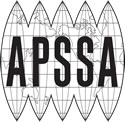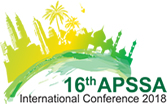Theme: Embracing the Future: Reflect-Respond-Reinvent”
Students today maintain multiple identities. They learn, interact and connect with each other, as well as with the world around them not just through face-to-face encounters, but also through the screens on their mobile phones. As a result, their knowledge structures, belief systems, and how they respond to the environment are also shaped by their interactions, both online and offline.
The 4th Industrial Revolution redefines the world of work, social norms and conventions, and economic development for our students. Institutions of higher learning are capable of, and will be able to help them to navigate the swift transformation. That said, there is a limit to what the institutions can do for the students. They should be aware of who they are, what they can do, and the identities that they represent in the society. Additionally, they need to have the resilience to face an uncertain yet exciting future, and the conviction that they can address those challenges with their own effort and willpower.
The 16th APSSA International Conference 2018 highlights pertinent issues for discussion in the student track of the conference. It is argued that participants have to look back at their own experience (reflect), identify ways to reach out and act (respond), and look at their roles and responsibilities in a different light (reinvent). It is hoped that the conference would enable participants to share experiences, context-specific lessons, and best practices which could be implemented at their institutions post-conference. They would then be able to work effectively with student affairs professionals for the benefit of the greater student population.
Four subthemes have been identified for the student track of the 16th APSSA International Conference 2018. The subthemes are as follows:
1. Humanisation: Using Social Media Responsibly
This subtheme deals with the students’ role in ensuring ethical, responsible, and mindful use of social media. Discussions under this subtheme include, but not limited to, usage patterns and demographics, case studies and lessons learnt in the use of social media, responsibility in sharing accurate and verified information sources, as well as tips in organising successful outreach on social media.
2. Physical and mental wellness: Challenges and Opportunities
This subtheme prompts the students to look at how they manage themselves, their relations with their peers and others around them, and their roles within their communities. Discussions under this subtheme include, but not limited to, students’ interpersonal competencies, students’ social safety net, gaps to be highlighted to student affairs professionals with regard to physical and mental wellness, as well as peer support and network in ensuring good physical and mental wellness.
3. You, Me and the Environment
This subtheme encourages the students to deliberate on issues related to environmental sustainability. Discussions under this subtheme include, but not limited to, education for sustainable development (ESD), disaster management and mitigation, initiatives on sustainability organised by student societies, as well as other issues related to environmental sustainability.
4. Becoming an Engaged Global Citizen
This subtheme underscores the students’ role in enhancing their international perspectives and intercultural competencies. Discussions under this subtheme include, but not limited to, their understanding towards current social, economic, political and environmental developments around the world, integration between domestic and international students, participation in student mobility programmes, as well as national unity and integrity.


